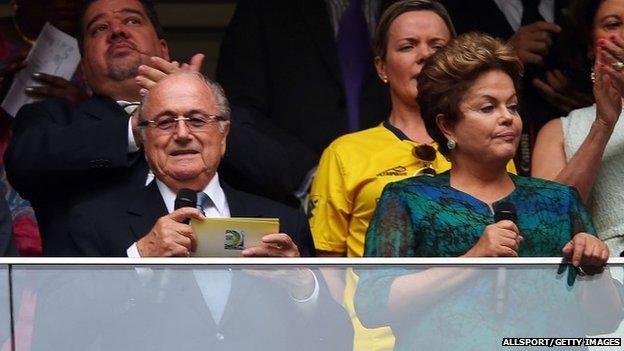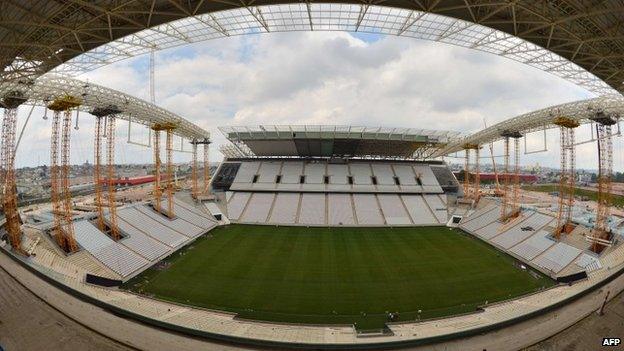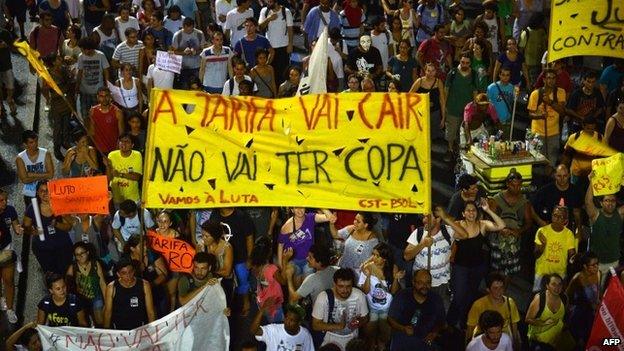Brazil World Cup: Fifa scraps speeches to avoid protest
- Published

Sepp Blatter (left) and Dilma Rousseff (right) were booed before a Brazil-Japan match in June last year
Football's world governing body, Fifa, has announced that there will be no speeches at the opening ceremony of the World Cup in June.
Last year, Brazilian President Dilma Rousseff was booed by fans at the opening match of the Confederations Cup - a curtain-raiser for the World Cup.
In an interview with DPA news agency, Fifa head Sepp Blatter expressed concern about social unrest in Brazil.
He said he hoped the event would play a part in calming down the protests.
Protesters took to the streets of many Brazilian cities shortly before the Confederations Cup in June 2013.
They denounced corruption and the perceived high cost of preparations for the World Cup and the 2016 Olympics, which will be hosted by Rio de Janeiro.

View of the Arena Corinthians in December, where the opening match is due to be played
Several of the 12 stadiums that will be used in the World Cup are still under construction.
Among the venues still being built is the Arena Corinthians, in Sao Paulo, where the opening match between Brazil and Croatia is due to be played on 12 June.
Mr Blatter, however, played down concerns that the stadiums will not be finished in time for the event.
"Everything with the stadiums will work out. This is not my first World Cup. In the end, all the stadiums will be ready," Mr Blatter told DPA.
Mr Blatter did not elaborate on his decision to scrap the speeches from the opening ceremony.
But last year he came out in the support of Ms Rousseff when she was booed by football fans as she opened the Confederations Cup in Brasilia.

Protests began with demands for a bus fare hike to be revoked but grew into a much wider movement
"Friends of Brazilian football, where is the respect and the fair play, please?" intervened Mr Blatter, who then became the target of the protests at the Brazilian capital's brand-new National Stadium.
He told DPA that the World Cup may have a positive impact: "We hope that the World Cup will play a part in calming down the social unrest that we experienced during the Confederations Cup".
It is not clear whether the Brazilian government was involved in the decision to remove Ms Rousseff's speech from the opening ceremony.
Mr Blatter also said that "the human rights situation" will be taken into account when Fifa awards the rights to host World Cups in the future.
The awarding process was criticised when Fifa announced that the 2018 and 2022 World Cups would be hosted by Russia and Qatar respectively.
- Published3 March 2014
- Published27 February 2014
- Attribution
- Published14 February 2014
- Published8 September 2013
- Published5 December 2013